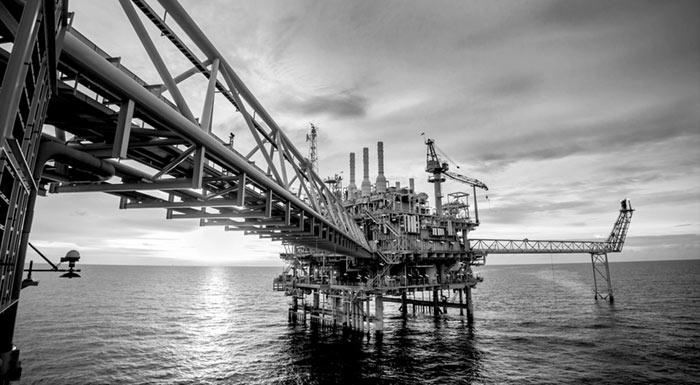-
Let’s go on a journey.
Don't Let the Sun Go Down on North Sea
- Where we are
- Europe - Aberdeen
- Americas - Houston
- Asia - Singapore
- The fun stuff.
- Five
- Case Studies
- Want to talk to us?
We tend to airbrush high unemployment, strikes, riots, the reasons behind Live Aid and the extended shadow of the Cold War out of that rosy picture of those times. My school’s response to the perceived threat from the east in the 80s was to allow the clever children to learn Russian, the rationale being – I kid you not – that if we were invaded they would be able to converse with their captors. That left the rest of us, who were forced to learn technical drawing, at a distinct linguistic disadvantage and facing the prospect of having to take on our enemy with nothing more than a set square and shatter proof ruler.

Another thing I remember about the early 80s was a bizarre rise in the popularity of chess, and a surge in interest in the world chess championships, which would even make the national news. It was in this era that Russia’s Garry Kasparov, arguably the greatest player of all time, literally became a household name.
I’d forgotten all about his brooding menace until, in 2012, I came across a fascinating article co-authored by the very same Kasparov and Peter Thiel while I was on a flight to a forgotten destination.
The title of the article was ‘Our dangerous illusion of tech progress’ and I mention it because I was reminded of it very recently at an oil and gas event in Aberdeen.
Kasparov and Thiel had argued that innovation depended on the liberty to take risks and make long-term plans. They suggested that in the past 40 years the world had willingly retreated from a culture of risk and exploration towards one of safety and regulation.
“We have discarded a century of can-do ambition built on rapid advances in technology and replaced it with a cautiousness far too satisfied with incremental improvements,” they claimed.
“We bounded forward in the 1950s and 1960s thanks to a generation of scientists who did not just believe in a better future but invented it. They popularised jet aviation, fed a growing world with the harvest of the green revolution, switched on the first nuclear reactors for civilian power, launched the first satellites for communications and built the first integrated circuit, laying the foundations for decades of innovation in information technology.”
Kasparov and Thiel argued that the IT revolution masked the relative stagnation of energy, transportation, space, materials, agriculture and medicine and had induced a misleading sensation of technological acceleration.
“We can now use phones to send cute kitten photos around the world … but the actual landscape around us is almost identical to the 1960s. Our ability to do basic things such as protect ourselves from earthquakes and hurricanes, to travel and to extend our lifespans is barely increasing.”
Fast forward to last month and comments reported from Colette Cohen, a vice president at Centrica, at the Industry Technology Facilitator’s annual conference in Aberdeen.
She had said that an innovation gap had opened up when oil prices were relatively high between 2005 and 2014, and that companies had become too afraid of risks, preferring instead to stick to tried and tested technologies.
She was reported as saying: “In the 1960s and 1970s only NASA was on a par with us. We’re now Luddites compared to other industries.”
She also criticised the slow uptake in the deployment of new technology in the oil and gas industry and urged the sector to stop believing it was ‘special’ so that it could take technologies from other industries and apply them.
I think Colette Cohen was highlighting at an industry level what Kasparov and Thiel were suggesting in their more wide ranging assertion four years earlier. Whether it’s as a society or a sector, it could be argued that we are making fewer of those massive technological advances than might have been assumed, given the progress in previous eras.
We hear about the development of ‘ground-breaking’, ‘game-changing’ and ‘revolutionary’ technologies and, while I bristle at these phrases, I am sure some of them genuinely are: but are all of them, really?

The oil and gas industry, particularly in the North Sea, has been very proud of its tradition in terms of technical innovation, and rightly so in many respects, especially in the relatively recent subsea industry. However we also know that if we are to survive we have to push for the advancement and adoption of new technologies, and speed up the process of that adoption.
In the current economic climate being endured by the oil and gas industry, which, in my view, received some support in the recent Budget but not enough, it’s understandable that investment in the research, development and deployment of new technologies may take a back seat. Similarly, we have enough examples to remind us of why the oil and gas industry is so risk averse. However, if we don’t continue to find new ways of exploring and producing then we will severely limit our abilities to extract the remaining resources we have, and thereby accelerate our own demise.
The North Sea is like a huge chessboard right now and making the right moves is more critical than ever.
Andrew Bradshaw looks back at an eventful 2019
Andrew Bradshaw sheds some light on the future of energy
Andrew Bradshaw discusses the alternatives to event marketing